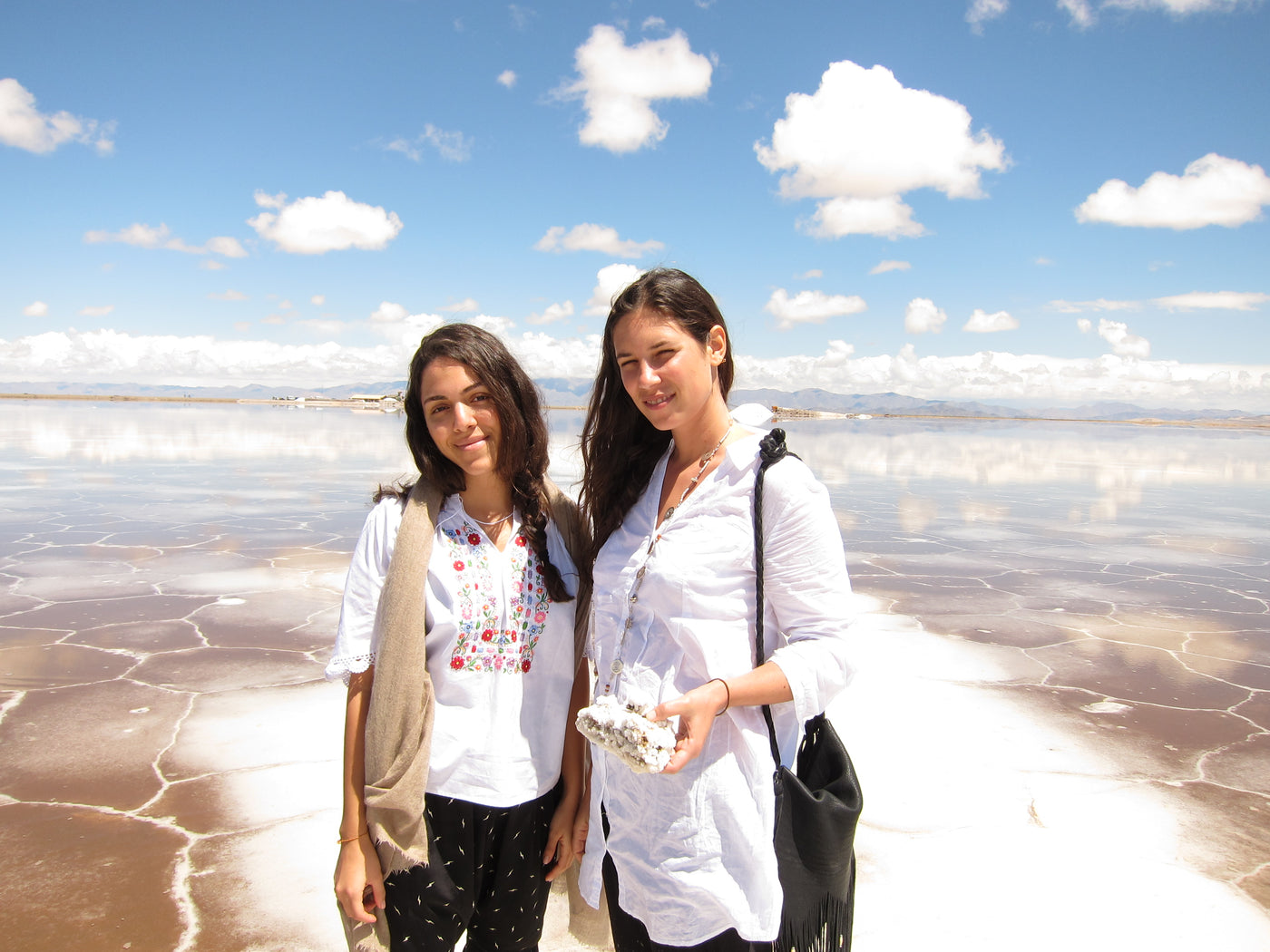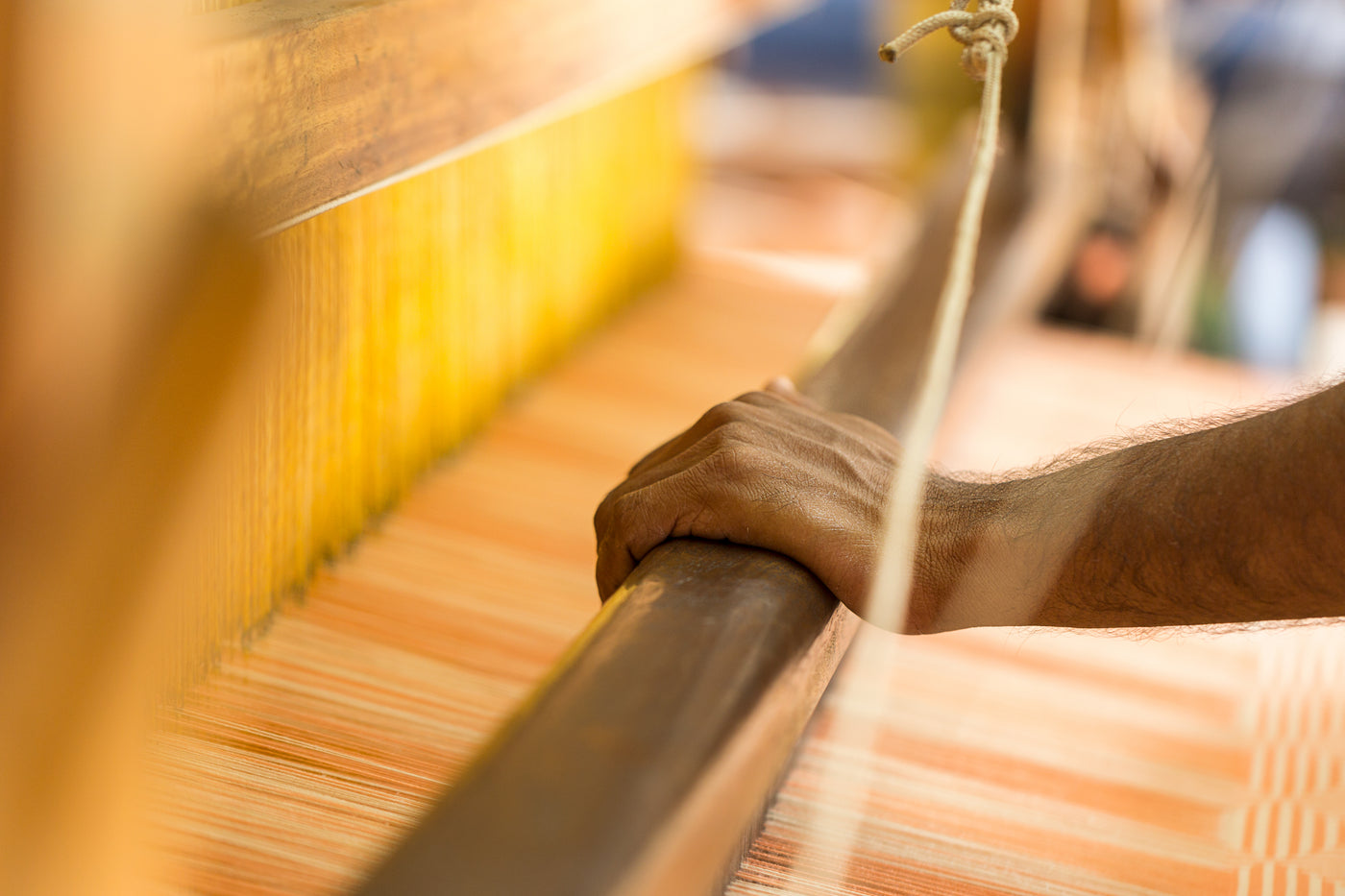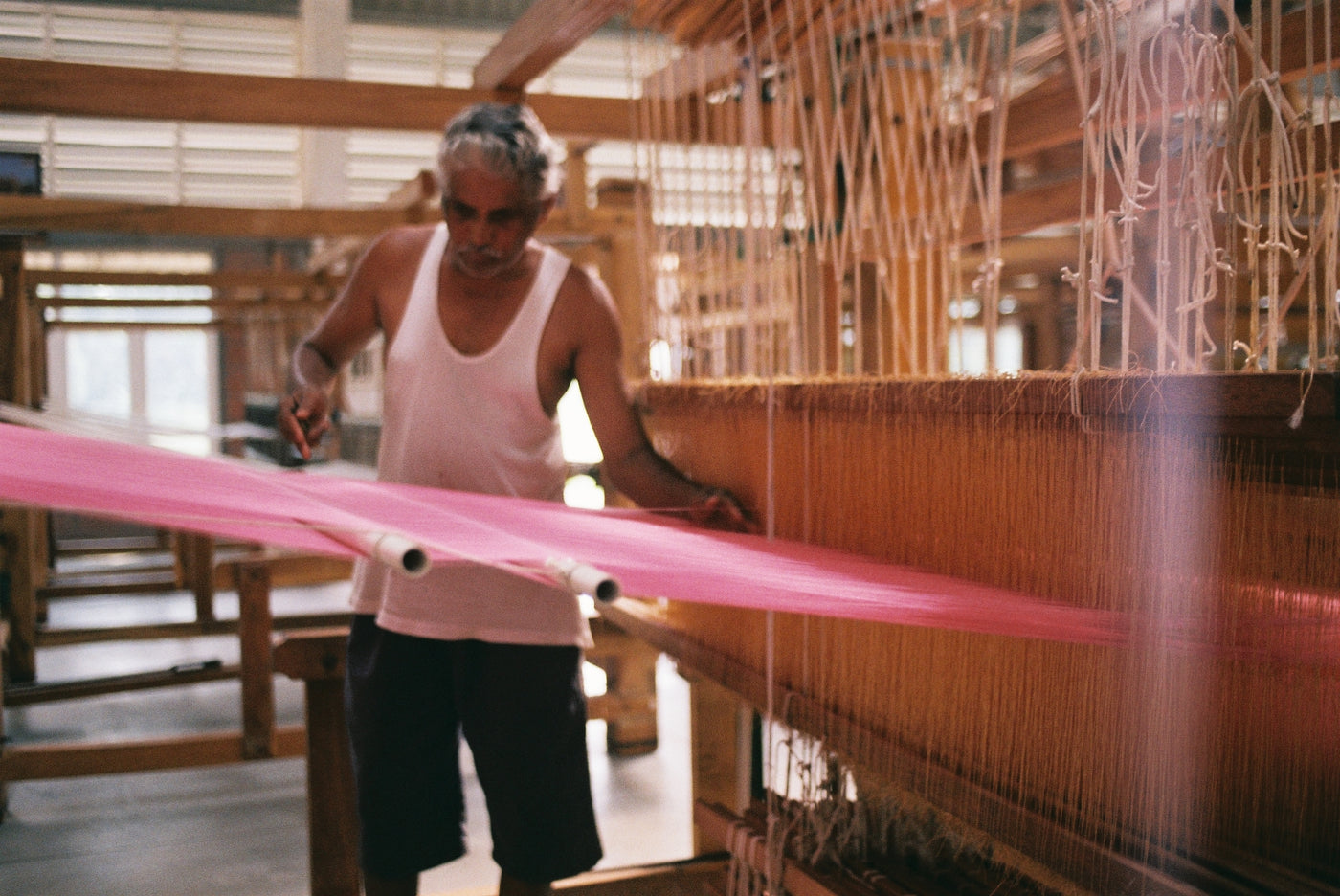
At Muzungu Sisters, we started our journey in sustainability and slow fashion in 2009, two years prior to our official 2011 launch. We started our project as a social enterprise that presented an antithesis to fast fashion, to bring rare hand-crafted timeless pieces to a wider audience. Today, to be sustainable remains at the heart of all our decisions and processes. Our pieces are not seasonal and they are designed to remain in style and to be appreciated by generation after generation.

We believe in transparency throughout the production chain, and we have known most of our artisans personally for many years. To be truly sustainable one should really buy less. Yet, as Muzungu Sisters is a social enterprise that sets out to empower artisans to continue to produce traditional crafts, this means we are constantly exploring more sustainable options while continuing our work to bring our artisan wares to a broader audience.
OEKO-TEX SILK
All our silk is OEKO-TEX certified. OEKO-TEX is a global testing and accreditation program; it sets standards for the screening of chemicals and harmful substances in fabrics and other consumer textiles. Textiles can only be certified if all components meet the rigorous test criteria submitted from raw materials through finished products.
ORGANIC COTTON
All our cotton is certified 100% organic. Our organic cotton is grown using methods and materials that have a low impact on the environment with systems in place to
replenish and sustain soil fertility, reduce the use of toxins, fertilisers and pesticides while building biologically diverse agriculture. The organic cotton is traditionally handwoven and hand-loomed in one of the last remaining traditional mills in Tamil Nadu, South India. It is grown using methods and materials that have a low impact on the environment, with systems in place to replenish and sustain soil fertility, reduce the use of toxic and persistent pesticides and fertilisers, and build biologically diverse agriculture. Our organic cotton is GMO free; cotton crops are not treated with pesticides, insecticides, herbicides.
Conventionally grown cotton uses more insecticides than any other crop in the world. These pesticides and insecticides used in cotton production contaminate the soil we use to grow crops, the air we breathe and the water we drink. The deaths of animals exposed to these contaminants is counted in the millions every year. The damage caused to us and the environment by growing non-organic cotton is enormous and is a real threat to us and our planet.



We use Alpaca wool for our Peruvian sweaters. This wool is super-soft and luxurious, as well as being a hypoallergenic natural fibre. The yarn is dyed using natural dyes derived from plants and vegetables leaving a minimal trace on the environment.
Alpaca wool is shaven, which makes the wool grow back faster. When alpaca graze, they do not damage or destroy root systems, so the terrain is left undamaged and plants and crops continue to grow. Alpaca consume less water and food compared to goats and sheep. Alpaca fibre does not contain lanolin or grease; therefore it is easy to wash without intensive detergents and chemical baths are not required to remove it. Our alpaca pieces are produced for us by the fair trade cooperative we work with in Cusco, Peru, and the alpaca is dyed using fruit and vegetable dyes.
SCREEN PRINTING
We digitally print our textiles; digital printing is a far more sustainable option as it uses less energy, produces less waste, uses less water and has a smaller carbon footprint overall. In addition, we use non-toxic, environmentally friendly inks in our digital printing.


Our shibori fabric is hand dyed and hand knotted by the men and women of Khamar, India using the traditional Shibori tie-dye technique. Each panel of the fabric is hand-knotted, hand-dyed using chemical-free and azo-free dye and then dried in the shade. The whole process takes about two weeks to complete.

We use hand-spun organic cotton, woven using traditional techniques on handmade looms through an NGO that revived one of the last remaining fabric mills in Tamil Nadu, India. The ethos at this weaving cooperative is to change the lives of the weavers in the rural village of Chennimalai in India, by teaching ancient loom techniques that risked being lost in their entirety.
PACKAGING
We are constantly looking for ways to minimize our footprint. This commitment includes using only 100% biodegradable polybags to ship all our wholesale orders, and these bags are only used for wholesale partners that require this form of transparent individual packaging. Where we need to use packaging, our orders are packaged in 100% cotton canvas bags instead of plastic. These bags are biodegradable and can be reused again and again.